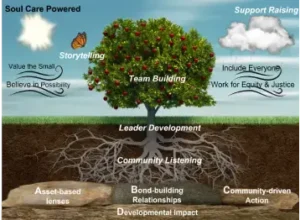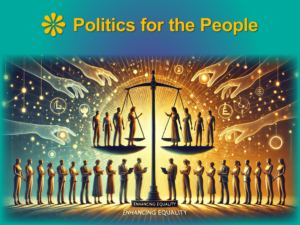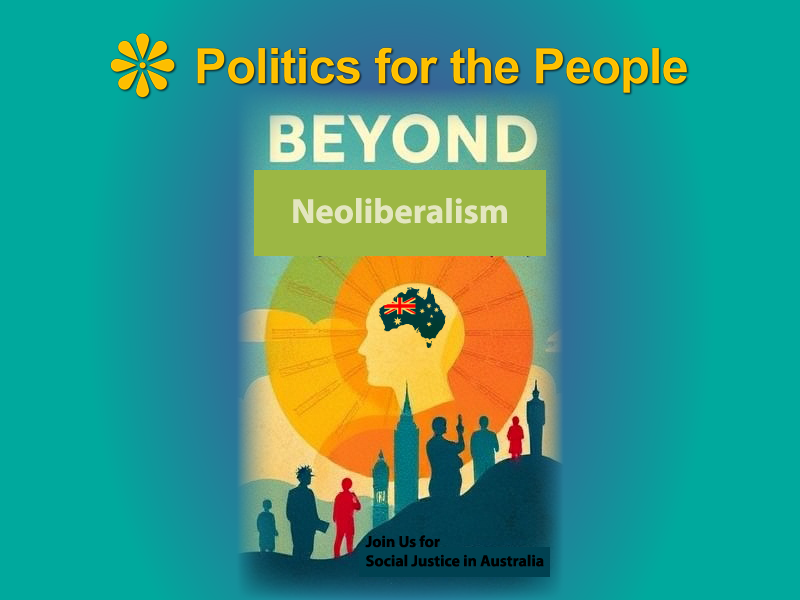Description
Explore the transition from neoliberalism to social justice, highlighting its benefits for communities, democracy, and equality.
Introduction
The transition from neoliberalism to a system prioritizing social justice marks a pivotal moment in societal development. This transformation, deeply committed to rectifying inequalities and bolstering democratic engagement, is set to reshape our communities, economic systems, and governance structures profoundly. This article examines the potential impacts of this shift, unveiling how a stronger emphasis on social justice can lead to a fairer and thriving society.
Benefits of Transition from Neoliberalism to Social Justice
Alleviating Suffering and Improving Life Chances
Enhancing Well-being and Opportunities
The departure from neoliberal policies offers a significant advantage in reducing suffering and boosting life opportunities for vulnerable groups. By focusing on human well-being over mere economic gain, social justice initiatives strive to create more fair opportunities for health, employment, and education.
This societal shift aims to dismantle barriers that prevent individuals from reaching their full potential, thereby fostering a more inclusive environment where everyone has a fair chance at success.
Fostering a Supportive Community Framework

As we move towards a system that values every citizen, the development of supportive social frameworks becomes crucial. These frameworks are designed to ensure that all individuals, especially those facing economic and social hardships, receive the necessary support to improve their life conditions.
Programs such as universal healthcare, affordable housing initiatives, and comprehensive social welfare can drastically enhance the quality of life for many, reducing poverty and preventing the cycle of disadvantage.
Democratic Consolidation and Economic Justice
Strengthening Democratic Engagement
This transition also encourages a more robust democratic process by fostering wider public participation and engagement. By involving more citizens in decision-making processes and ensuring their voices are heard, a social justice-oriented system enhances democratic legitimacy and accountability.
This consolidation of democracy is essential for pursuing economic and social justice, as it empowers individuals to advocate for fair and just policies that reflect the needs of the broader community.
Enhancing Economic Equity

Promoting social justice requires tackling the deep-rooted disparities in economic conditions and opportunities that have widened over decades, particularly under neoliberal economic frameworks. Economic inequities are often the result of systemic policies that favour the wealthy—such as regressive taxation systems, corporate tax loopholes, and privatized essential services—while disproportionately burdening lower- and middle-income Australians.
Addressing these imbalances involves adopting a comprehensive approach that prioritizes the fair distribution of wealth, opportunity, and resources to create a fairer and just society.
One of the most effective tools for enhancing economic equity is progressive taxation, where higher-income earners and large corporations contribute a fairer share of their wealth to the public good. By closing tax loopholes and cracking down on corporate tax avoidance, billions in lost revenue could be redirected to fund essential services, including healthcare, education, affordable housing, and infrastructure.
These public investments not only address immediate inequalities but also provide opportunities for upward mobility by creating pathways for employment, skills development, and economic participation for disadvantaged groups.
In addition to taxation, fair resource allocation is crucial in ensuring that public spending helps all Australians, not just the elite or politically favoured regions. Redirecting funds toward underserved areas—such as regional and rural communities—can help bridge disparities in access to education, healthcare, and economic opportunities. Investments in public services like universal childcare, affordable housing initiatives, and public transportation systems empower individuals and families, particularly those struggling with cost-of-living pressures, to take part fully in society and the economy.
Promoting economic equity also requires tackling structural barriers that perpetuate inequality. This includes implementing policies that strengthen workers’ rights, such as fair wages, secure employment conditions, and stronger protections for casual and gig workers.
Reducing the gender pay gap and addressing income disparities for marginalized groups, including Indigenous Australians and immigrants, ensures that economic growth helps all segments of society rather than concentrating wealth among the privileged few.
Furthermore, sustainable, and fair economic policies can foster long-term economic resilience and stability. By prioritizing investments in renewable energy, public infrastructure, and innovation-driven sectors, governments can create jobs and opportunities while reducing economic reliance on unsustainable industries.
This approach not only promotes fair growth but also aligns with environmental sustainability goals, ensuring a fairer future for generations to come.
Enhancing economic equity is about rebalancing the scales to ensure that economic growth works for everyone—not just the elite. By combining progressive taxation, fair resource distribution, structural reforms, and sustainable investments, Australia can build a more just and inclusive economy that uplifts all citizens, fosters opportunity, and reduces the systemic inequalities that hinder social progress.
Inclusive Education and Society
Building an Equitable Educational System
The shift towards social justice needs substantial reforms in the educational sector, emphasizing inclusivity and equity. By redesigning the educational system to be more student-centered and diverse, we can ensure that students from all backgrounds have access to quality education.
This includes integrating curricula that are inclusive of various cultures and histories, reducing barriers to educational access, and implementing support systems that cater to the needs of all students.
Cultivating a Culture of Diversity and Acceptance
Education reform under a social justice framework also aims to cultivate a culture that values diversity and promotes acceptance. Such educational environments encourage students to understand and respect different perspectives, fostering a generation that appreciates diversity and is committed to promoting equity both inside and outside the classroom.
Mitigating Socioeconomic Inequalities
Addressing the Roots of Inequality
A focus on social justice helps to mitigate the effects of socioeconomic inequalities more effectively by addressing their root causes. By redistributing resources more equitably and ensuring that everyone has access to basic services, the state can help level the playing field.
Initiatives such as living wage policies, enhanced access to quality healthcare, and investments in underserved communities are critical for reducing disparities and enhancing overall societal well-being.
Promoting Peace and Social Cohesion
A fair distribution of resources not only reduces inequality but also promotes peace and social cohesion. When individuals feel that the system is fair and that their needs are being met, social tensions are likely to decrease, leading to a more stable and harmonious society.
Conclusion
The transition from neoliberalism to a social justice-oriented framework is not just a policy shift; it stands for a profound evolution in how society values and treats all its members. This transformation promises a fairer, more inclusive world where democracy, equity, and human dignity are at the forefront. By supporting this transition, we contribute to building a society that truly values each person’s potential and well-being.
Question for Readers
What steps can you take to actively take part in and support the transition towards a more just and fair society in your community?
Call to Action
Stand up for social justice! Advocate for inclusive policies, engage in community initiatives, and elevate your voice in support of democratic reforms. Share this article with your contacts and on social media to inspire others to join the movement towards a fairer, more inclusive world.
References:
Royal Commission on Inclusive Education
The Value of Inclusive Education
The Impact of Socio-Economic Inequality on Peacebuilding and State building

